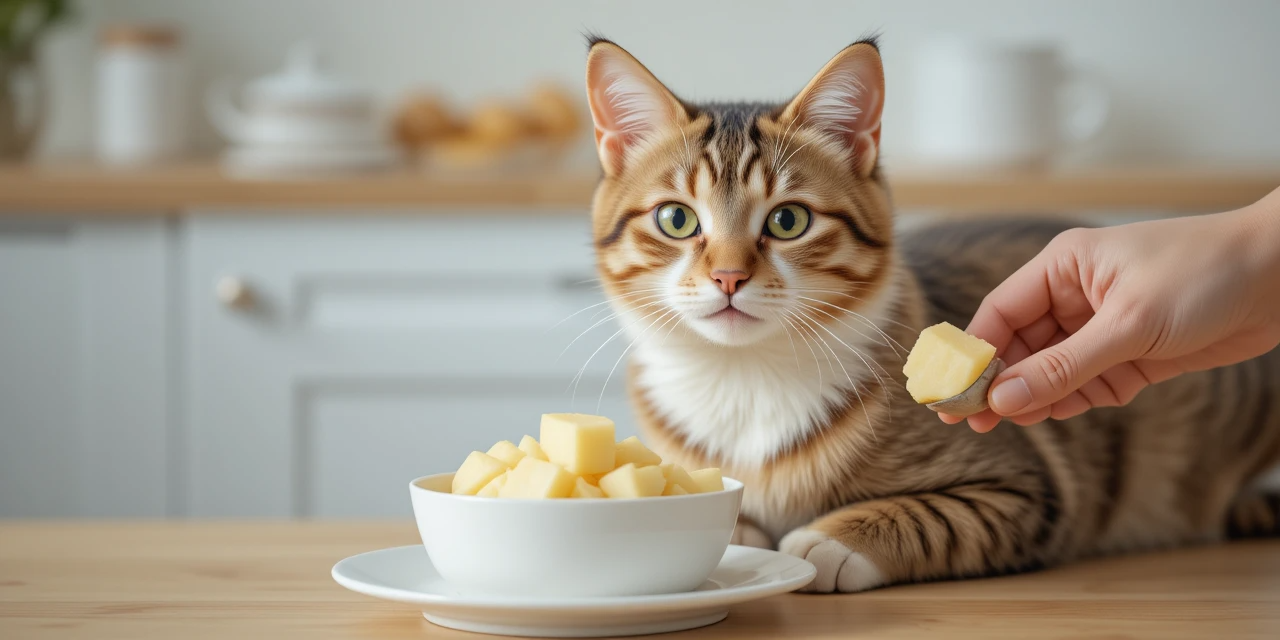Can Cats Eat Potatoes? A Comprehensive Guide to Feline Nutrition and Safety
Potatoes are a staple in many human diets around the world. They are versatile, nutrient-rich, and enjoyed in countless recipes. But when it comes to our feline friends, the question arises: Can cats eat potatoes? Unlike humans, cats have very specific dietary needs as obligate carnivores, meaning their bodies rely primarily on nutrients found in meat. Feeding them certain human foods, like potatoes, requires careful consideration. This article will explore whether potatoes are safe for cats, how to feed them properly, and what risks to watch out for.
Can Cats Eat Potatoes?
Yes, cats can eat potatoes, but there are important caveats. Raw potatoes are toxic to cats and should never be fed under any circumstances. The toxic compound solanine, which is found in raw potatoes and their green parts, can cause serious health problems in cats. However, small amounts of cooked potatoes — peeled and prepared without harmful additives — may be safe for cats as an occasional treat.
Feeding your cat raw potatoes or potato plants can be very dangerous, but cooked potatoes, in moderation and prepared correctly, are generally non-toxic.
Understanding Potato Toxicity
The main danger in feeding potatoes to cats lies in the compound solanine, a natural toxin found in the nightshade family, which includes potatoes, tomatoes, and eggplants. Solanine is concentrated in the green skin, sprouts, and any parts of the potato exposed to light.
Symptoms of Solanine Poisoning in Cats:
- Vomiting
- Diarrhea
- Lethargy or weakness
- Abdominal pain
- Loss of appetite
- Confusion or neurological symptoms in severe cases
If your cat ingests raw potato or green parts, contact your veterinarian immediately.
Safe Ways to Feed Potatoes to Cats
If you decide to feed potatoes to your cat, it is essential to follow strict preparation guidelines:
- Always cook potatoes thoroughly. Boiling or baking until soft is best.
- Peel the skin completely to remove solanine and other toxins.
- Serve plain, without salt, butter, oil, spices, or any seasonings.
- Give only small portions as an occasional treat — a tiny amount mixed into their regular food or offered as a bite-sized snack.
Because cats don’t require carbohydrates in their diet, potatoes should never replace their primary protein sources.
Nutritional Perspective
Potatoes contain vitamins such as Vitamin C, Vitamin B6, and minerals like potassium, as well as dietary fiber. While these nutrients are beneficial for humans, cats have different nutritional needs:
- Cats are obligate carnivores and primarily need proteins and fats found in meat.
- Their digestive systems are not designed to handle large amounts of carbohydrates, including starches from potatoes.
- Too much potato can lead to digestive upset or weight gain in cats.
Therefore, potatoes should only be a small, occasional addition — never a dietary staple.
Sweet Potatoes vs. White Potatoes
An important distinction to make is between white potatoes and sweet potatoes:
- White potatoes contain solanine and other glycoalkaloids, which are toxic in raw form.
- Sweet potatoes do not contain solanine and are generally safer for cats when cooked properly.
Many pet foods include cooked sweet potatoes as a fiber source, but the same rules of moderation and proper preparation apply.
Potential Risks and Considerations
Even cooked potatoes carry risks if fed improperly or too frequently:
- Overfeeding carbohydrates like potatoes can lead to obesity and digestive issues.
- Cats with pre-existing health conditions, such as diabetes or kidney disease, should avoid potatoes due to their carbohydrate content.
- Allergic reactions or food sensitivities may occur; monitor your cat’s response carefully when introducing potatoes.
- Avoid any potato-based snacks made for humans, which often contain salt, seasonings, or other additives harmful to cats.
Expert Opinions
Veterinarians and pet nutritionists agree:
- Raw potatoes and green parts of the potato plant are dangerous for cats.
- Small amounts of cooked, peeled potatoes can be safe occasionally, but cats don’t need potatoes for a balanced diet.
- It’s best to consult your veterinarian before adding any human food to your cat’s diet, especially if your cat has underlying health issues.
Dr. Jane Doe, DVM, notes, “While potatoes can be safe in tiny amounts when cooked, I don’t recommend feeding potatoes regularly. Cats’ nutritional needs are best met by high-quality protein sources.”
Conclusion
Potatoes are a food that requires caution when it comes to cats. Raw potatoes and any green parts are toxic and should never be fed. Cooked, peeled potatoes may be offered in very small amounts as an occasional treat but should not replace meat or balanced cat food. Always prepare potatoes plainly and monitor your cat for any adverse reactions.
Before introducing potatoes or any new food to your cat, it is essential to consult with your veterinarian. Keeping your cat’s diet tailored to their unique carnivorous needs ensures they stay happy and healthy.
FAQ (Optional for SEO)
Q: Can cats eat potato chips or fries?
No. Potato chips and fries contain salt, oil, and seasonings that can be harmful to cats.
Q: Are sweet potatoes better than white potatoes for cats?
Yes, sweet potatoes do not contain solanine and are generally safer when cooked, but still should be given sparingly.
Q: What should I do if my cat eats raw potato?
Contact your vet immediately as raw potatoes can cause poisoning.


